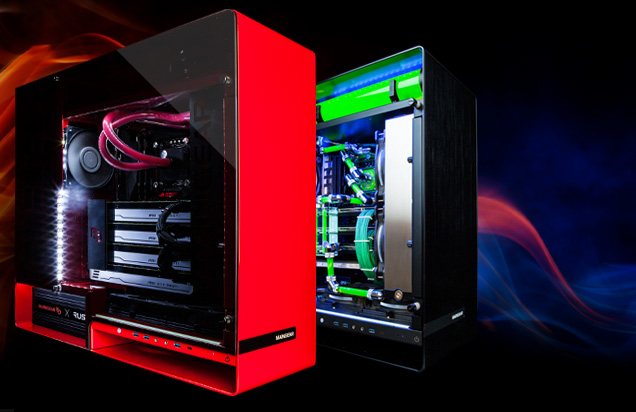Misguided energy proposal could drive up cost of prebuilt gaming PCs
GeForce GTX 1080 wouldn't meet minimum requirements.

Prebuilt gaming PCs already carry a premium price tag, especially if purchasing from a boutique builder, but they could get even more expensive for Californians if a series of proposed regulations by the California Energy Commission (CEC) end up being approved, Delidded Tech reports.
The CEC has good intentions. Should a new set of standards for computers and monitors go through, the agency estimates consumers would collectively stand to save $373 million annually in wasted energy costs. In California alone, the CEC says PCs and PC monitors use an estimated 5,610 gigawatt-hours of electricity, the equivalent of about 3 percent of residential electricity use and 7 percent commercial use. To lower those figures, the CEC wants to implement rules designed to reduce idle energy consumption.
"Computers are an everyday appliance for many Californians and waste energy when they often sit idle," said Commissioner Andrew McAllister, who is the Energy Commission's lead on energy efficiency. "Cutting energy while no one is using a computer can save consumers millions on their utility bills, which reduces the need to generate more electricity. The proposed standards are a win-win made possible by the cooperation of so many who contributed their knowledge throughout the process."
The CES says the new standards would add about $14 to the cost of a desktop computer, while saving consumers more than $40 in electricity bills over a five-year period. That sounds like a fair enough trade-off, though some of the agency's proposals seem a bit misguided.
How this whole process would work is that systems would be classified based on an "expandability" score. The limitations on power consumption would make it difficult for gaming PCs to meet the standards set forth. However, "high expandability" systems with a score above 690 would have a different set of limitations, ones that are primarily intended for workstations. This is the tier that a gaming PC would likely end up in.
In order to qualify as a high-expandability system, one of the requirements is that the memory bandwidth on the graphics card must be at least 400GB/s by 2018, and 600GB/s by 2020. The system would also have to use a 600W or greater power supply that's 80 Plus Gold certified.
Why set a minimum frame buffer bandwidth? That's a good question without a convincing answer (that we can think of). As a point of reference, Nvidia's GeForce GTX 1080 graphics card, which sells for $600, has a memory bandwidth of 320GB/s. Bear in mind that's a top shelf graphics card, and its memory bandwidth is 20 percent below where it needs to be in a couple of years.
The biggest gaming news, reviews and hardware deals
Keep up to date with the most important stories and the best deals, as picked by the PC Gamer team.
One thing that will help is the introduction of second generation High Bandwidth Memory (HBM2), but what about the majority of mid-range cards in 2018? They won't be using cutting edge (and more costly) memory solutions.
The CEC may not have thought this all the way through. It's not hard to envision system builders adding more expensive parts such as a meatier PSU simply for the sake of meeting a regulation requirement.
If you're up for a long read, you can check out the full 101-page proposal here (PDF).
Paul has been playing PC games and raking his knuckles on computer hardware since the Commodore 64. He does not have any tattoos, but thinks it would be cool to get one that reads LOAD"*",8,1. In his off time, he rides motorcycles and wrestles alligators (only one of those is true).


